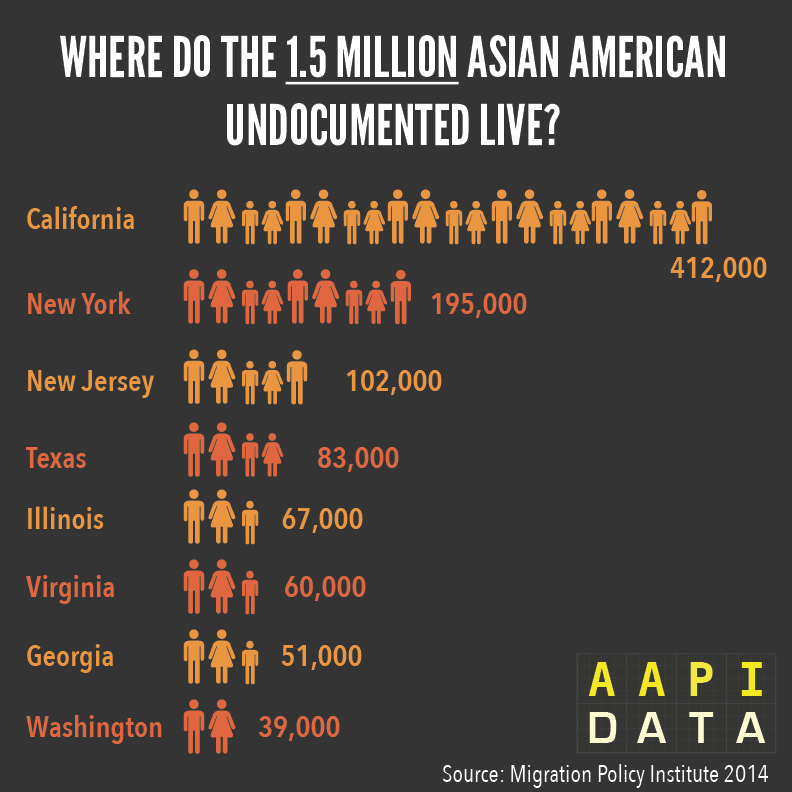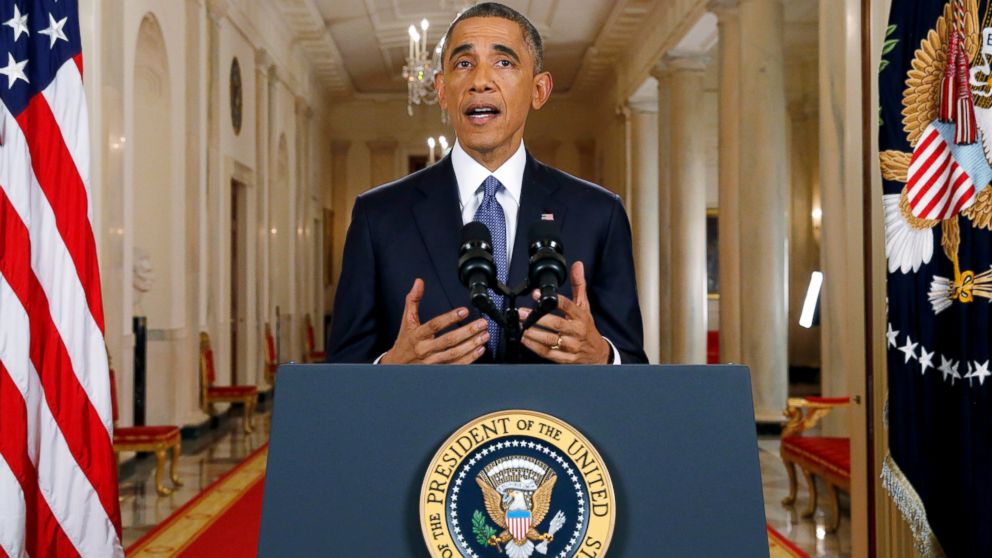
In a speech — less than 20 minutes long and snubbed by the country’s major cable networks — President Barack Obama made history (again).
In 2008, Obama promised constituents comprehensive immigration reform within his first term, but a combination of Republican obstructionism and a prioritization of other issues (like healthcare reform) led to the tabling of the issue. By Obama’s re-election campaign in 2012, immigration activists were frustrated and alarmed, Obama’s inaction coupled with his administration’s record high rate of returns and removals led to many on the Progressive Left to start labeling him the “Deporter-In-Chief”. A multiracial coalition of activists including prominent AAPI civil rights organizations and undocumented immigrants such as Jose Antonio Vargas and Ju Hong lobbied tirelessly to pressure Obama and the Left to address immigration reform before 2016. They held the rest of us accountable by refusing to allow the fight for comprehensive immigration reform to leave the spotlight.
Last night, these activists should be taking a victory lap, because last night President Obama took the first step towards that promise of comprehensive immigration reform. And, while it is a small step with many caveats, it’s a necessary one.
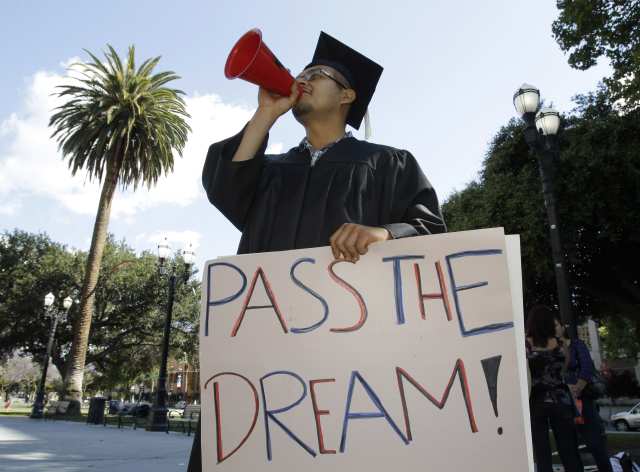
In his immigration address, President Obama announced his intention to take executive action on immigration reform, loosely presented in three broad strokes: 1) to increase resources for securing of America’s northern and southern borders; 2) to address administrative backlog that profoundly hinders the documented entry and retention of highly-skilled immigrants; and 3) to establish a system for deportation relief that is estimated to bring over 5 million undocumented immigrants out of the shadows.
Obama’s focus on visa backlogs is of profound interest because I am one of this nation’s millions of people living in the United States on a temporary or permanent resident visa. In fact, more than two-thirds of AAPI are foreign-born immigrants; many have first-hand experience navigating this country’s tortuous immigration system. In a press conference held yesterday by a diverse coalition of civil rights organizations, Mee Moua (@mee_moua) of Asian Americans Advancing Justice estimated that over 1.8 million people from Asian countries are currently stuck by the backlog waiting for a visa. Average processing times for a visa to obtain legal entry into the United states can extend months or even years; those waiting often find themselves in a sort of immigration limbo, separated from family and sometimes prohibited from work or travel.
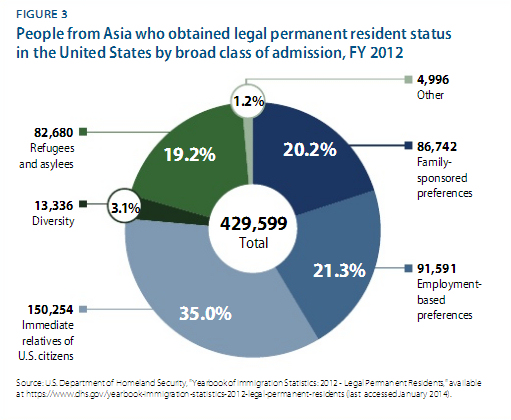
President Obama’s executive action will profoundly address this visa backlog problem, one that typically receives little attention in the campaign for comprehensive immigration reform. He vows to streamline the work visa application process, to introduce work authorization portability for those awaiting legal permanent resident status (a status that depends upon employer credentials and due to the long wait times for visa approval has left many applicants stuck in the same job for years unable to switch to a new position), and to expand work visa opportunities for highly-skilled immigrants.
These first steps represent a profound sea change for those of us who are currently here by the grace of this country’s often confounding and frustrating immigration system; not only will these efforts expand economic growth in this country by inviting and encouraging skilled workers to join the American workforce, but it takes steps to end some of the more inhumane consequences of the immigration system. Under the current system, visa applicants are unable to leave the country under any circumstance: stories abound of immigrants forced to miss weddings and funerals of loved ones held in their countries of origin because international travel will invalidate their visa application. President Obama’s executive action deserves applause for the relief it offers for this nation’s documented immigrants.
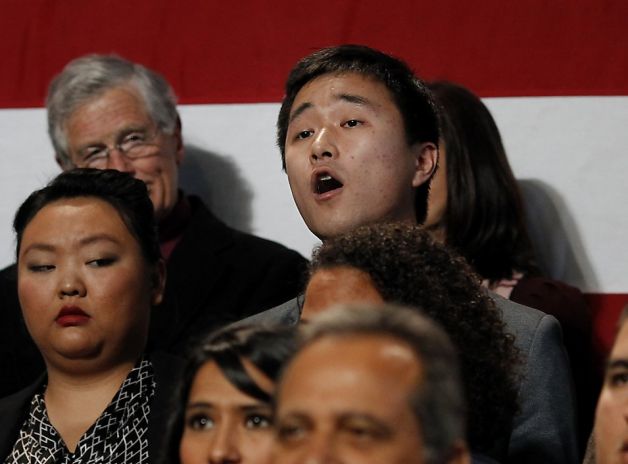
Perhaps more controversial of President Obama’s changes, however, is his introduction of a system to offer deportation relief for a subset of the country’s undocumented immigrants. Under Obama’s executive action, undocumented immigrants who have been in this country for longer than five years or who are the parents of domestic-born children can register for protection from ICE removal if they agree to pay taxes and a fine for their undocumented entry. Here are the details:
- The applicant must either have been here for longer than 5 years, or be the parent of an American-born child born before November 20, 2014 (i.e. before this action was announced).
- The applicant must pass a criminal background check.
- The applicant must agree to submit biometric information for registration.
- The applicant must agree to pay a tax and fines.
- The applicant will receive a three year guarantee of deferred action regarding deportation, and simultaneous work approval.
In addition to this action, President Obama expanded deportation protection for DREAMers to include those who had been excluded from the original deferred action protections due to their age or the date of their arrival. He also announced an end to the Secure Communities program, which gave ICE officials access to fingerprint records obtained by local law enforcement, in essence deputizing local police as immigration officers while driving undocumented immigrants deeper underground.
Here, too, there is a lot to praise in President Obama’s announcement. Above all, many (but sadly not all) undocumented immigrants — including the country’s estimated 1.3 – 1.5 million AAPI undocumented — will finally be invited out of the shadows and have a mechanism through which they can participate openly in society. Through this system, qualifying undocumented immigrants will no longer be afraid to work, to attend school, to travel, or to call police when they are in danger; all fears that make members of America’s undocumented community highly vulnerable to criminal exploitation. Many estimate that Obama’s announcement could impact over 5 million undocumented workers, most of them Latino and/or AAPI.
But, of course, there is plenty of room for reservation with Obama’s announcement of executive action, as well — all of it stemming from the central problem that this landmark action on immigration reform is occurring by executive order, not Congressional action.
By simple virtue of how these actions are being ordered — through the Executive, not the Legislative branch — all of Obama’s announcements are inherently temporary and limited. The White House has the power to affect enforcement of existing laws, not the power to rewrite law. When Obama leaves office in 2016, his successor — whomever he or she might be — will have the power to revoke this executive order in a shorter amount of time than it took President Obama to announce it.
The amount of progress announced by Obama last night is small, but important. It signals to Congress, and to the American people, that immigration reform is a necessary political priority. It demands better behaviour from the Republican-led Congress in the face of its ongoing inaction on this issue. And, above all, it proves to the American public that we can welcome undocumented immigrants into American society, and the country will not culturally or politically implode.
But, for Obama’s announcement to have any sort of lasting effect, we must treat this announcement as only a first step. We need lasting legislative changes to completely overhaul this country’s broken immigration system, and for that we must turn our attention back to Congress, and specifically on those we elected and re-elected earlier this month. The ball is now in their court; will they stand on the right side of history?
Meanwhile, we on the Progressive Left must make a commitment, and we must make it now. Whomever we hand the White House to in 2016 will make or break Obama’s executive action on immigration, and whomever we send to Congress will write the laws that cement immigration reform for generations.
We must therefore commit — today — to having a long memory. We must commit to redoubling our efforts in working over the next two years for immigrant justice. We must commit to vote on the immigration reform issue. We must commit to the promise that President Obama’s executive action truly is only the first step in this nation’s journey towards comprehensive immigration reform.
President Obama’s announcement was a great first step. Now, it’s time to take the next one.
Act Now! Stand in support of immigrant justice! Check out the following websites for rallies and other actions you can participate in.
- StopSeparatingFamilies.org
- We Belong Together (focused on women advocates and undocumented immigrants and co-founded by NAPAWF chair Miriam Yeung)
